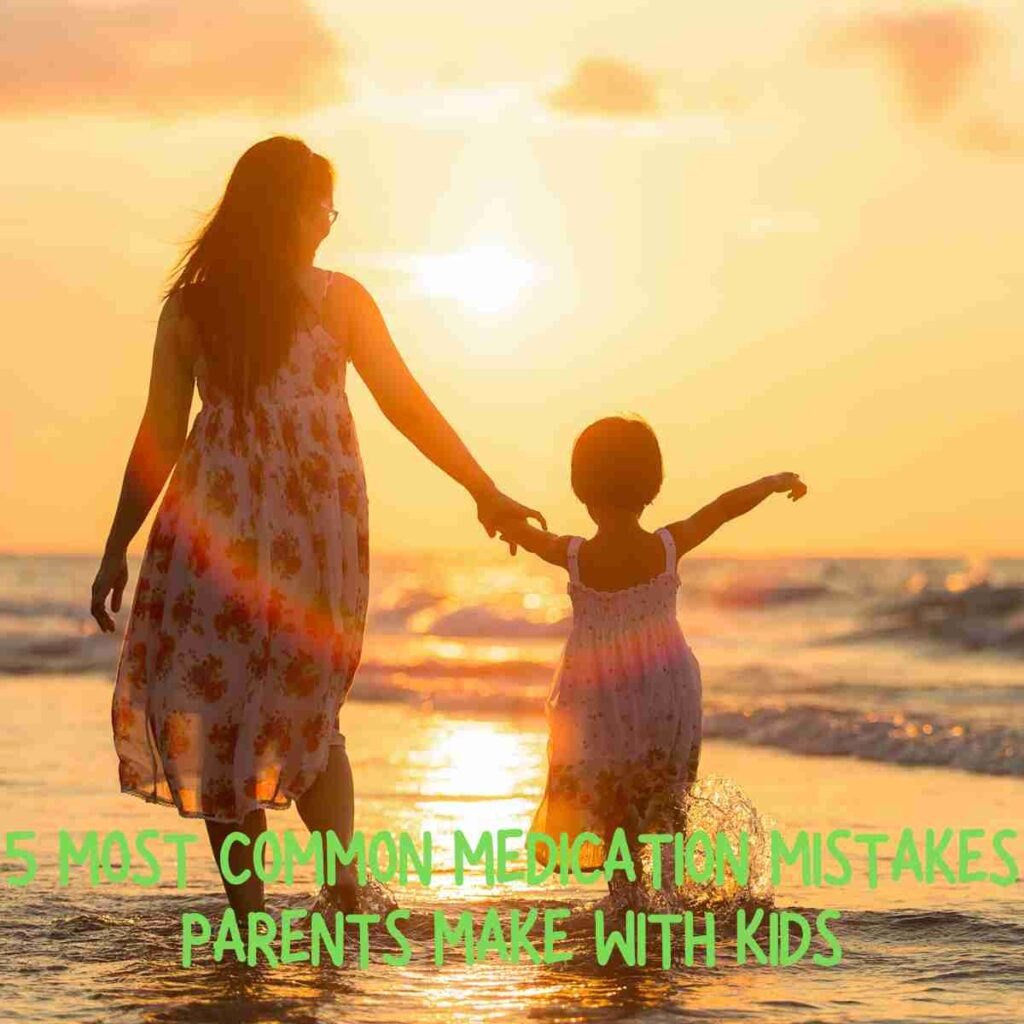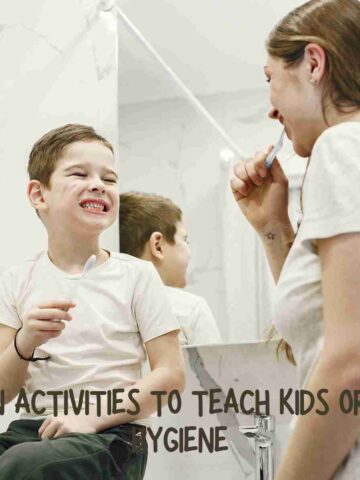Doctors suggest parents keep medications handy. You never know when a child will suffer from stomach pain, cold, flu, or a cough. Research reveals that over 80% of parents make at least one kid’s dosage error when measuring out the liquid medication for kids. An overdose can be harmful, while under-dose would not give the result. Most medication mistakes parents make are with liquid cough syrups, pain relievers, and antibiotics.
It is tricky to measure liquid medicines accurately. Sadly, even the most meticulous parents end up making medication mistakes.

Let us learn more about the common mistakes parents make with kids’ medicine from 1 to 10:
#1: Inaccurate Measurements
Generally, we use household kitchen teaspoons or tablespoons for dosage. As a result, it is very difficult to determine the appropriate dosing, which often leads to an overdose. To dispense medicine to your kids, always use marked medicine measuring spoons, syringes, or cups. Kitchen spoons never provide the accurate measurement – you may be giving either too much or too little dosage. Avoid it, and switch to dedicated children’s medicine measuring tools.
#2: Not Considering the Weight
Doctors prescribe medicines to children based on their weight, not age. For instance, 2tsp of pain-relieving acetaminophen can bring down the fever of a child weighing 55 lbs. However, for a child weighing 75 lbs, it would take 3tsp of the same medicine. So, always make a note of the child’s weight during a doctor’s visit.
#3: Determining Dosage
You need not determine the dosage of medicines given to your kid. You should always follow the prescription of your doctor and give the appropriate dosage as mentioned. For instance, if you give an extra dose of antibiotic to your child (in place of one teaspoon, you are giving 1 ½ teaspoon), it can be dangerous. Extra dosage given over a long period can lead to kidney damage. So, check the prescription and labels carefully.
#4: Overmedication for Speedy Recovery
A major medication mistake that parents make with kids – is overmedication. If you believe that overmedication leads to a speedy recovery, you are wrong! Even if your child vomits within an hour of taking medicine, you should not repeat the dose unless your pediatrician prescribes it.
Some parents also believe that if a drug does not work instantly, an added dose might be helpful. You are grossly mistaken! Give up these habits and just follow your doctor’s instructions.
#5: Not Completing the Full Course
Once your child starts feeling better, you might be tempted to leave the bottle as it is. Well, that is not how it should be!
Medicines have a defined dosage; it is very important to complete the dosage as per your doctor. In addition, if your doctor prescribes that you should give a different drug instead of the usual one, make sure you discard the first one. Do not store antibiotics in the refrigerator only for later use. Discard unused liquids, tablets, capsules, and supplements.
Additional Expert Tips on Right Medication for Kids
- Not all drugs get absorbed easily. So, do not even attempt to add medicines to your child’s drink or food.
- Children should take antibiotics an hour before or post meals. Some drugs go with meals too such as prescribed sulfa drugs for ear infections.
- Give medicines to your kids with water, not anything else (no chocolate syrup or carbonated beverages).
- If your doctor prescribes a medicine to be given with food, do as suggested.
- Avoid giving baby medicine while sleeping. Liquid medicines are sticky. It might cause congestion and lead to fatal consequences.
Always consult your pediatrician in case of any confusion with dosage, measurement, or timing. Parents should understand that the child’s medicine has a specific dosage. In case of an overdose, your child may suffer adverse consequences.




